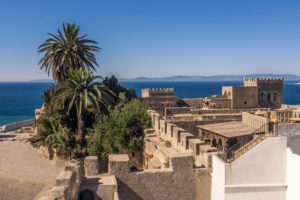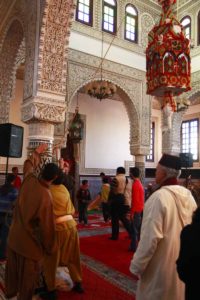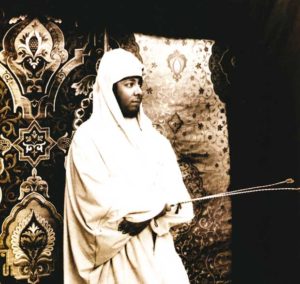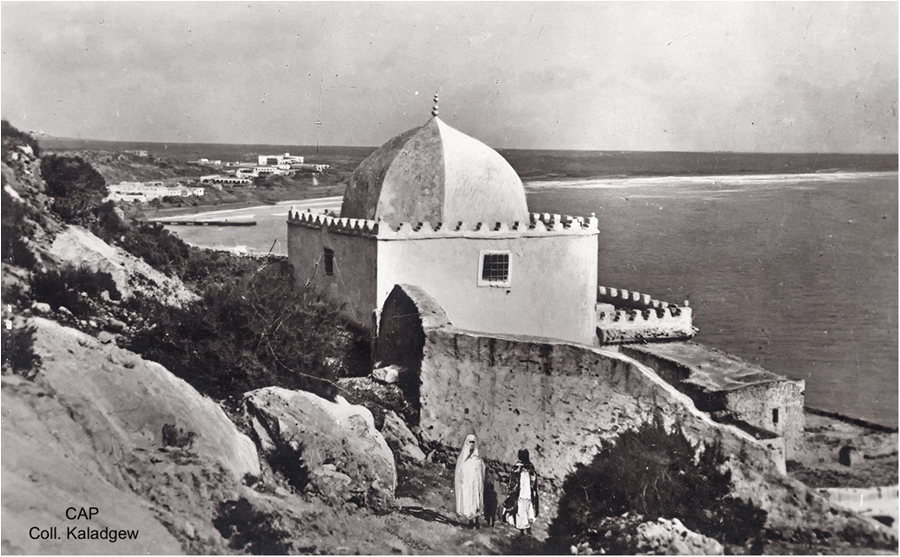Articles
Authorities’ measures towards pandemics in Moroccan History
Article author: Mohamed Siali
Date of publication of the article: 07/05/2020
Year of publication: 2020
Mohamed Siali – Rabat, May 4th (EFE)
The restrictive measures that have followed the spreading of coronavirus have become something global. However, in the case of Morocco, they are not something unprecedented, as it has experienced many devastating epidemics in the past, as historian Nabil Mouline reminds in an interview with Efe.
Both sultans and ulama’ (doctors in Islam) have resorted in the past to the closing of borders, lockdowns for those arriving from abroad, or the closing of mosques. History also shows that, when they refused to do this, the consequences for its population were terrible.
A structural phenomenon
According to Mouline, epidemics have been a common phenomenon in Moroccan history. For instance, during the 12th and 13th century, more than 140 epidemics were registered.

Even though many of these outbreaks had a limited impact, forty of them had serious consequences at all levels, especially the different types of plague and fevers, leprosy, the smallpox virus, syphilis, cholera and measles.
These epidemics came from abroad, either through the sea, through the Northern ports, especially Tangiers, Ceuta and Tetouan, or by land through Algiers, and spread to the country’s interior due to the pilgrims, traders or soldiers.
According to Mouline, epidemics have been a common phenomenon in Moroccan history. For instance, during the 12th and 13th century, more than 140 epidemics were registered.
In 1799, for example, Alaoui Sultan Moulay Suleiman (1792-1822) led his army, affected by the plague, from Fes to the Southern cities of Safi, Essaouira and Marrakech, causing a fast spreading of the disease and important human losses.
Big epidemics were, in fact, catastrophic for Morocco. In the year 1348, for instance, the Black Death killed between a 30% and a 50% of the population (between 1.5 and 2.5 million people), and the country didn’t reach its previous population until the 16th century
Official measures
Two of the most frequent methods adopted in the Mediterranean region to protect its populations against epidemics in the Middle Age were: the closing of borders and lockdowns. However, as Mouline explains, the central authority or Makhzen, as it is usually referred to, did not adopt these measures easily.
The Empire borders were only closed on few occasions (1582, 1679, 1804, 1810 and 1817), meanwhile, the quarantine was not applied until the 18th century.
In 1792, the European consuls in Tangiers (the Sultanate’s diplomatic capital) established a health council to prevent epidemics, including a quarantine for the people reaching the country in times of epidemic. This measure was successfully applied in the city several times between 1793 and 1817.
Two of the most frequent methods adopted in the Mediterranean region to protect its populations against epidemics in the Middle Age were: the closing of borders and lockdowns.
In 1818, a boat filled with pilgrims reached the port of Tangiers. The consuls knew that some of the passengers were bringing the plague and they tried to convince Moulay Suleiman to put it in quarantine, but the sultan refused because his sons were on board.

In 1878, the representatives of sultan Hassan I (1873-1894) in Tangiers suggested to impose a lockdown to the city in order to protect the country, but the sultan rejected the advice, as he considered it impled “imitating the infidels”.
Other sultans such as Yacoub al Mansour (12th century), Abi Inan al Merini (14th century), and Ahmed al Mansour (16th century) did adopt this preemptive measures inspired in the Greek and Arab science in order to protect themselves and its entourage.
For example, they isolated their palaces, or took refuge in faraway towns, where the changed their place of residency every two days. They also reduced the contact with the outside world and disinfected the letters they received with vinegar.
Clerks and science
With regard to religious opinions, which had an important influence in the matters of the State, the clerks answered in two different ways. The first trend reconciled the Holy texts with science, for the period’s standards, although it was not very common.
The second one, more frequent, adopted a metaphysical and fatalistic explanation and considered epidemics a divine punishment, so they considered it was forbidden to take any measure to prevent them.
Other sultans such as Yacoub al Mansour (12th century), Abi Inan al Merini (14th century), and Ahmed al Mansour (16th century) did adopt this preemptive measures inspired in the Greek and Arab science in order to protect themselves and its entourage.
Mouline tells the story of two different cases, that of Ibn Abi Madian, one of the most important Sufi leaders of the Benimerin Sultanate, who considered that the Back Death was a contagious disease like any other, and, therefore, advised to take all kind of precautions.

“When he heard that the Black Death had spread from Sale, in 1349, he adopted strict measures. After storing enough food, he closed the door of his house to prevent all kind of contact with the outside world. By doing so, he managed to save his family and a big part of his students”, explained the Historian.
The opposite stance was adopted by Ahmed Ibn Ajiba, one of the most prominent Sufi figures in the 18th century, who considered that the Black Death was a reflection of God’s will and it should not be fought through any means.
When the disease spread across Tetouan, north of the country, between the years 1798 and 1800, this cheikh opposed any preemptive measure. “The result was a disaster: all of his children died, and he personally joined them later, as a result of the pandemic, in 1808”.
Suspension of rituals
In the year 1056, for example, collective prayers were suspended and mosque doors were closed to protect from the Black Death. But in most cases, the temples remained open and many people went there looking for divine comfort, which was counterproductive.
In the year 1056, for example, collective prayers were suspended and mosque doors were closed to protect from the Black Death.
As for the pilgrimage, many of Maliki ulama’ (Morocco’s official doctrine) issued fatwas (religious pronouncements) defending that the preservation of lives was more important than religious duties, states Mouline.

In 1897, Alaoui Sultan Moulay Abdelaziz (1894-1908) ordered the suspension of the pilgrimage to Mecca for political and health reasons. The most important reason was the spreading of the plague from India.
Epidemics and the monarchy
In spite of its vulnerability, the central power has taken some occasional measures to protect the monarchy and collect the necessary resources to fight against epidemics, as well as closing borders and imposing lockdowns. In addition to this, some kings distributed food and money among those in need.
In addition, the authorities distributed seeds among farmers, imported food, fixed prices, and fought against speculation.
In some cases, the epidemics weakened the social tissue, especially the power of tribes and brotherhoods, which helped the central authority to strengthen its influence and extend its control over different regions of the Empire.
But in most cases, the epidemics weakened the central authority and its legitimacy, as the lower tax revenues, the lack of human resources, and the weak administrative structures hindered the management of the disease. EFE
Translation: Alfonso Casani – FUNCI


